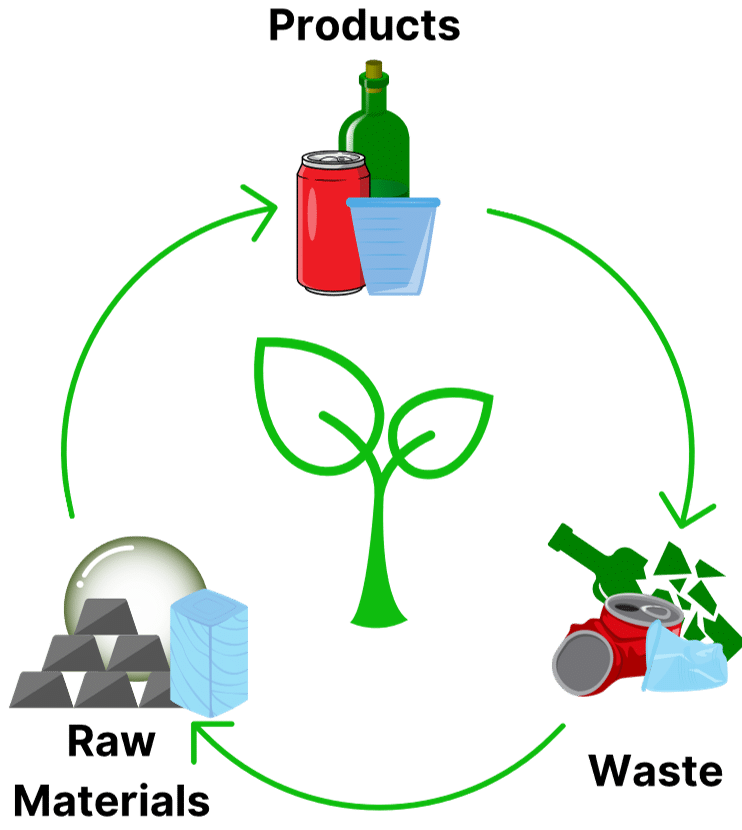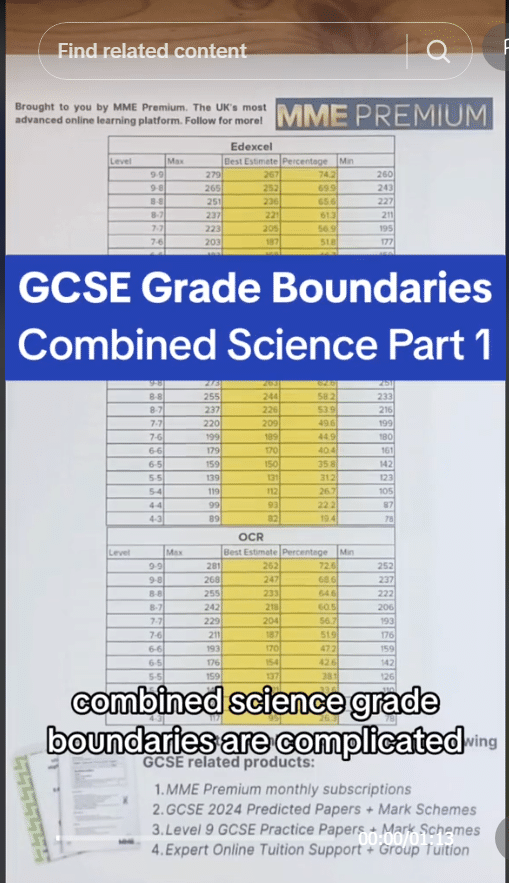Reducing Use of Resources
Reducing Use of Resources Revision
Reducing Use of Resources
To use the Earth’s resources sustainably it is important for society to reduce its use of raw materials. This can be done by recycling and reusing materials that have already been extracted and processed. Recycling has both advantages and disadvantages, but on the whole society has seen the advantages as outweighing the disadvantages.
Reducing use of Raw Materials

Many of the materials and products that we use in our day-to-day lives are produced using limited natural resources. Materials like metals, glass, and ceramics require the extraction of finite raw materials. This puts pressure on the supplies of these resources as more and more of them are used, and also frequently causes damage to the natural environment as a result of extraction operations.
To live sustainably, it is important that society reduces the amounts of raw materials that it extracts from the Earth. To do this we can reuse and recycle materials that have already been extracted and processed. This means that instead of discarding products after once they have been used, they should be kept and properly processed to extract the materials used in their manufacture.
This reduces the demand for new supplies of already pressured natural resources and also reduces the amount of waste that goes to land fill.
Reuse or Recycle
Some materials can be reused after they have reached the end of their operational life. For example, glass bottles can be reused after we are done with them. By returning them to their manufacturers where they can be cleaned out and refilled. This allows us to dramatically reduce the demand for the raw materials required to produce the bottles.
Not all products can be reused however. For example, aluminium cans are typically difficult to reuse once they have been used once. In these cases, it may be possible to recycle the product instead. This is particularly useful for metals. Metals can be recycled using the following process:
- Separation: Products that have reached the end of their useful life are taken to recycling centres. These products are dismantled and the different components separated out. Non-recyclable materials are removed and sent to landfill. The recyclable metal components are kept and processed further.
- Melting Down: The recovered metal components are then melted down to obtain the isolated metal. Depending on the desired use of the recycled metal, alloys may be further separated into their elements, or simply left as they are.
- Recasting: The new raw metal can then be melted down again and recast into other products. In some cases, the melted down metal may also be added into the process of new metal manufacture. For example scrap steel can be added to blast furnaces in the production of iron. This reduces the amount of iron ore needed.
Pros and Cons of Recycling
Recycling is one way in which society can live more sustainably. However, like most things, recycling is not free of its issues. There are certain disadvantages to the recycling process:
- Waste must be transported to recycling centres. This generates carbon emissions from the vehicles used.
- Recyclable materials often need to be separated from non-recyclable materials. This process can be very labour intensive.
- Melting down materials needs a lot of energy. This adds to fossil fuel demand by increasing the demand for power generation.
However, recycling also has a number of major advantages:
- The environmental impact from the extraction and processing of new raw materials is significantly reduced.
- The amount of waste that goes to landfill is also greatly reduced.
- As demand for raw materials is reduced, the supplies of these materials will last longer.
On the whole, though recycling has its drawbacks, the positive results of the process have been seen by society to outweigh its issues. This has led to most local governments providing at least some kind of recycling provision in its waste disposal systems.
Reducing Use of Resources Example Questions
Question 1: Name the three stages of recycling metals.
[3 marks]
- Separation
- Melting Down
- Recasting
Question 2: State one advantage of recycling.
[1 mark]
Any one advantage from:
- Reduced environmental impact.
- Reduced resource demand.
- Reduced waste.
Question 3: State one disadvantage of recycling.
[1 mark]
Any one disadvantage from:
- Waste must be transported to recycling centers.
- Waste must be processed.
- Melting down waste requires energy.
Reducing Use of Resources Worksheet and Example Questions
Materials and Resources
GCSEOfficial MME
MME Premium Membership
£19.99
/monthLearn an entire GCSE course for maths, English and science on the most comprehensive online learning platform. With revision explainer videos & notes, practice questions, topic tests and full mock exams for each topic on every course, it’s easy to Learn and Revise with the MME Learning Portal.
Sign Up Now




